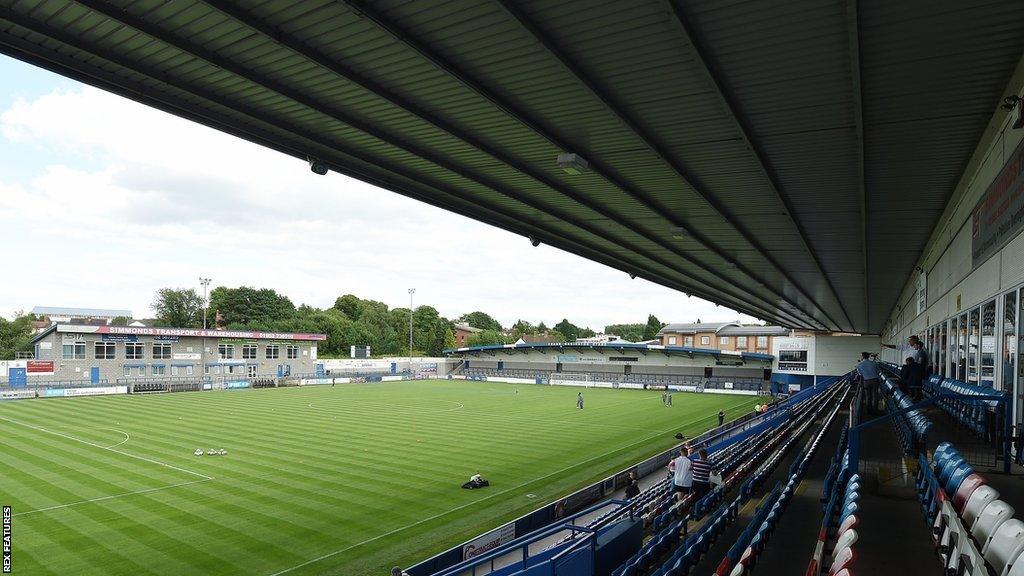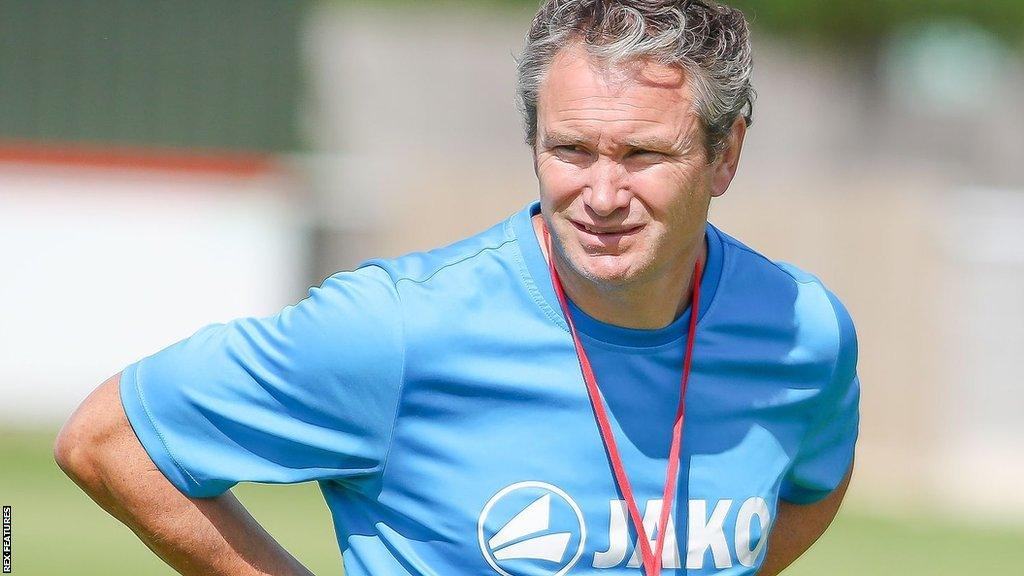AFC Telford United: Shropshire's second club relegated back to English seventh tier
- Published

AFC Telford United were last in the seventh tier in 2007
AFC Telford United have been relegated from National League North.
The Bucks' demise, all but sealed for some weeks, was finally confirmed by Farsley Celtic's 2-1 win over Brackley, external, which leaves Telford 18 points adrift of safety, with just five games left.
They will now play next season in either the Southern League or the Northern Premier League.
It means a return to the seventh tier of English football for the Shropshire club for the first time since 2007.
Telford become this season's second side in the top seven tiers of English football to be relegated following Maidstone in the National League.
After a dreadful start to the season brought the sacking of manager Gavin Cowan in October, former Nuneaton, Wrexham and Brackley boss Kevin Wilkin, a long-time Telford target, was finally appointed.

Long-time Telford target Kevin Wilkin joined the Bucks as the new boss following his early season sacking by NLN rivals Brackley
But, despite a six-game unbeaten run from Boxing Day onwards, and although they have only lost two of their last six games, including two wins, he was unable to halt the slide.
However, in a club statement released on Thursday, the Bucks said that Wilkin will keep his job and build a squad to try to mount a promotion challenge next season.
AFC Telford are a 'phoenix club' formed by fans in 2004 following the liquidation of the old Telford United.
Since starting life following their reformation in the eighth tier of English football, the Bucks have twice been promoted to the National League, in 2011 and 2014, but each time relegated back to the sixth tier, in 2013 and 2015.
In the eight seasons since, they have just had one top-half finish (eighth in 2018-19 under Cowan) and only escaped relegation last season by two points.
The old Telford's good old days
Telford's plight is a long way from the reputation they once built as English football's foremost non-league side.
After changing their name to Telford United from Wellington Town in 1969, and then winning the FA Trophy for the first time in 1971, they were twice managed by England World Cup winners, Geoff Hurst and Gordon Banks, but the Lilywhites enjoyed their greatest days in the 1980s under Stan Storton.
As well as being founder members of English football's first 'fifth division', the Alliance Premier League, in 1979, Telford made a great reputation for themselves as non-league FA Cup fighters.
The club could boast an illustrious record in the world's oldest knockout competition, beating Football League opposition 13 times.
They had their best run, to the fifth round, in 1985, losing to eventual beaten finalists Everton, then again lost to the beaten finalists when put out by Millwall in 2004.
They also added to their first Wembley win by winning the FA Trophy twice more in the 1980s.
They even applied to join the Football League in 1982, when they finished third behind Alliance Premier League champions Runcorn, whose ground failed to meet Football League requirements.
But the application was unsuccessful - and their financial struggles began to kick in at the end of the 1990s, before their eventual end-of-season demise in 2004, external.
'Many questions need to be answered' - Analysis
Nick Southall - BBC Radio Shropshire sports reporter
Relegation has been looming on the horizon for the past few seasons but it's still come as a shock to see a club of Telford's stature crash out of the National North.
Many questions will need to be answered as to how this has happened. Only then can the club carry out a reset to come back stronger, with a better vision for the future and how it's going to be achieved.
The phoenix club back in 2004 had a clear purpose, to regain its place at the top table of non-league football.
It needs to create a new narrative to get the fans back on board in order to bring back those happy memories of the climb back to the top in the 2000s. Those days seem a long way off at the moment.